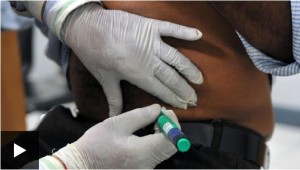Neurosynaptic is now working to expand its ReMeDi (Remote Medical Diagnostics) solution, that can work with minimal infrastructure and skills set. In the last 16 years, ReMeDi has enabled over 2,200 rural tele-health centres, covering over 5 crore population. Deployments are spread across 10 states in India, as well as eight countries in Africa and South / Southeast Asia through multiple hospital and implementation partners. ReMeDi solution started as a point-to-point telemedicine solution with limited four physiology diagnostic parameters in 2005, when it was first deployed at the rural kiosks, with an entrepreneur model. Since then, there has been a steady evolution of the technology as well as business models that are in use, Sameer Sawarkar, co-founder & CEO, Neurosynaptic Communications told Pharmabiz. Several changes have happened over the years, including client-server architecture for conducting multiple concurrent remote consultations. Further it evolved into a multi-tenant architecture available with Software-as-a-Service model on the cloud. The latest Wireless Bluetooth-Low-Energy enabled devices are power efficient that last several hundreds of readings in a single charge. These changes allow ReMeDi platform to address non-communicable and infectious diseases besides mother & child care. A framework for clinical decision support system helps in differential diagnosis, he added. While retaining some very important features like operation in extremely low resource settings, ReMeDi was appreciated globally. This led to bag recognitions including World Economic Forum’s Technology Pioneer award, Grand Challenges Canada – Stars in Global Health, Millennium Alliance award, Business Line Emerging Social Enterprise Award 2017, Frost and Sullivan Emerging Digital Healthcare Service Provider of the year 2017, Inspire Innovation Award 2017, Innovators Appreciation Award by PHFI at the Universal Health Coverage Conclave in 2018. The company is invested by Indian Angel Networks, HealthQuad, Axilor and e-Zest. A number of NGOs, mission and corporate hospitals, and corporate partners are using the solution for diagnostics and consultations. Newer segments like CSR are also helping to increase revenues. Now For fuelling this growth, investments would be required. We would raise investments from strategic investors in the near future, he said. In the last two years, Neurosynaptic’s focus has been to redesign its ReMeDi solution. To this end, the company had raised a Series-A investment from Healthquad, IAN and Axilor in 2016. The funds were utilized for ReMeDi-NOVA BLE (Bluetooth Low Energy) enabled range of medical devices and carrying out its various certifications. It is also working in several new technology initiatives to widen the range of point-of-care offerings to include NCD screenings, primarily cancers, Data Analytics, and newer diagnostics, perform automated Artificial Intelligence based screening for various health conditions, enabling widespread usage with low skill-set operators. With a current team size of 35 personnel and going by the robust growth in business, it plans to double the strength the end of this fiscal, said Sawarkar. Ref: http://www.pharmabiz.com/NewsDetails.aspx?aid=110764&sid=1 |

Neurosynaptic to expand remote medical diagnostics solution- Sameer Sawarkar
Neurosynaptic is now working to expand its ReMeDi (Remote Medical Diagnostics) solution, that can work with minimal infrastructure and skills set. In the last 16 years, ReMeDi has enabled over 2,200 rural tele-health centres, covering over 5 crore population. Deployments are spread across 10 states in India, as well as eight countries in Africa and South / Southeast Asia through multiple hospital and implementation partners. ReMeDi solution started as a point-to-point telemedicine solution with limited four physiology diagnostic parameters in 2005, when it was first deployed at the rural kiosks, with an entrepreneur model. Since then, there has been a steady evolution of the technology as well as business models that are in use, Sameer Sawarkar, co-founder & CEO, Neurosynaptic Communications told Pharmabiz. Several changes have happened over the years, including client-server architecture for conducting multiple concurrent remote consultations. Further it evolved into a multi-tenant architecture available with Software-as-a-Service model on the cloud. The latest Wireless Bluetooth-Low-Energy enabled devices are power efficient that last several hundreds of readings in a single charge. These changes allow ReMeDi platform to address non-communicable and infectious diseases besides mother & child care. A framework for clinical decision support system helps in differential diagnosis, he added. While retaining some very important features like operation in extremely low resource settings, ReMeDi was appreciated globally. This led to bag recognitions including World Economic Forum’s Technology Pioneer award, Grand Challenges Canada – Stars in Global Health, Millennium Alliance award, Business Line Emerging Social Enterprise Award 2017, Frost and Sullivan Emerging Digital Healthcare Service Provider of the year 2017, Inspire Innovation Award 2017, Innovators Appreciation Award by PHFI at the Universal Health Coverage Conclave in 2018. The company is invested by Indian Angel Networks, HealthQuad, Axilor and e-Zest. A number of NGOs, mission and corporate hospitals, and corporate partners are using the solution for diagnostics and consultations. Newer segments like CSR are also helping to increase revenues. Now For fuelling this growth, investments would be required. We would raise investments from strategic investors in the near future, he said. In the last two years, Neurosynaptic’s focus has been to redesign its ReMeDi solution. To this end, the company had raised a Series-A investment from Healthquad, IAN and Axilor in 2016. The funds were utilized for ReMeDi-NOVA BLE (Bluetooth Low Energy) enabled range of medical devices and carrying out its various certifications. It is also working in several new technology initiatives to widen the range of point-of-care offerings to include NCD screenings, primarily cancers, Data Analytics, and newer diagnostics, perform automated Artificial Intelligence based screening for various health conditions, enabling widespread usage with low skill-set operators. With a current team size of 35 personnel and going by the robust growth in business, it plans to double the strength the end of this fiscal, said Sawarkar. Ref: http://www.pharmabiz.com/NewsDetails.aspx?aid=110764&sid=1 |


